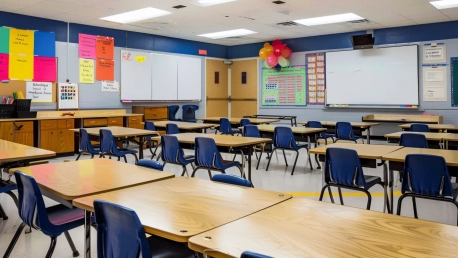As the Grand Forks School Board election approaches on June 11, a pressing emphasis is placed on addressing the challenges to student learning and educational outcomes magnified by the pandemic. Six candidates, including three incumbents and three hopeful newcomers, are contending for four at-large seats. They bring varied priorities and perspectives to the forefront, with a common goal of enhancing the district’s educational standards. This election could mark a decisive moment for the future of education in Grand Forks, as stakeholders aim to recover and advance from pandemic-induced setbacks.
Diverse Perspectives on Student Achievement
The pandemic’s toll on academic performance is a shared concern among the candidates. Incumbent Jeff Manley notes a significant decline in student grades, stressing the need for immediate action to improve learning conditions. Manley believes that making substantial improvements to facilities, particularly in air quality and ventilation systems, is vital to bettering the educational environment and, in turn, student performance. He also advocates for setting clear, measurable objectives to raise student proficiency and ensure effective recovery efforts.Manley’s eagerness to drive enhancements in learning conditions is supported by his strategic vision. He proposes a detailed plan with specific milestones to track progress in boosting student achievement. By prioritizing educational excellence and focusing on tangible outcomes, Manley sets forth a framework aimed at not only overcoming the current educational hurdles but also striving for long-term academic success within the district.
Evaluating Educational Spending and Methodologies
Roland Riemers offers a critical perspective on the gap between educational spending and student achievement. He expresses that while the U.S. invests heavily in education, the outcomes often fail to reflect this financial commitment. Riemers advocates for an educational paradigm that prioritizes creativity, self-directed thinking, and personal responsibility over rote learning, suggesting that these qualities will better prepare students for the challenges of the future.Riemers is adamant about initiating reforms that promote innovative pedagogical approaches and curriculum designs, encouraging students to develop problem-solving capabilities alongside academic proficiency. He sees value in cultivating intellectual independence, which stands as a stark contrast to the conventional, standardized modes of teaching that currently dominate the educational system.
Addressing the Learning Gap and Staff Challenges
The dialogue further intensifies with Cameron Murphy’s insights into the “slowly degrading learning rate” in Grand Forks schools. Using data from Stanford’s Education Opportunity Project, Murphy highlights that the district lags behind national performance standards. He emphasizes the critical role of qualified, empowered educators in this equation and points to challenges within the staff acquisition and retention processes, emphasizing workplace environment and compensation as key factors in need of improvement.Murphy is passionate about strengthening the district’s human capital, recognizing the direct correlation between dedicated staff and student achievement. His call to action involves a comprehensive assessment and revamp of the current employment practices to attract and maintain a robust educational workforce. Both recruitment and nurturing of talent form the cornerstone of Murphy’s strategy to revitalize learning in the district.
The Critical Role of Recruitment and Retention
Aligning with Murphy, Eric Lunn asserts that the heart of the district’s success lies within its people. He contends that ensuring a nurturing, safe, and rewarding environment for employees will lead to a more effective and motivated workforce. Lunn argues that such an environment is essential for retaining quality staff, which is a principal challenge faced by the school district.Lunn’s recommendations focus on fostering an organizational culture that values and supports its employees, recognizing that such a culture is instrumental in facilitating the recruitment and retention of dedicated professionals. He sees this as the path toward creating a sustainable and thriving educational ecosystem within the Grand Forks school system.
The Importance of Mental Health in Schools
In a pivot to the impact of psychological well-being on academic outcomes, Amber Flynn draws attention to the mental health of students and staff. She contends that by proactively addressing their emotional and mental health needs, the district can enhance the educational experience. Flynn is keenly aware of the symptoms of burnout among educators and the trickle-down effects this has on their students.Flynn suggests that a strategy focused on bolstering mental health resources and support systems could provide significant benefits. She encourages the district to explore innovative approaches to mental health so as to create a more resilient and supportive learning environment, thereby strengthening the educational framework from within.
Countering Distrust in Public Education
As the Grand Forks School Board election on June 11 draws near, the community is keenly focused on overcoming the educational hurdles that have been highlighted by the COVID-19 pandemic. A total of six candidates are vying for four available at-large seats—three are current members seeking reelection, while the other three are newcomers eager to contribute fresh ideas. These contenders are united by their dedication to elevating the quality of education in the district, yet they present diverse approaches and priorities. The stakes are high in this election, considered pivotal for the district’s educational trajectory, as it looks to rebound and progress from the challenges that have arisen during these unprecedented times. The outcome will significantly influence how Grand Forks schools navigate post-pandemic recovery and strive towards academic excellence.









